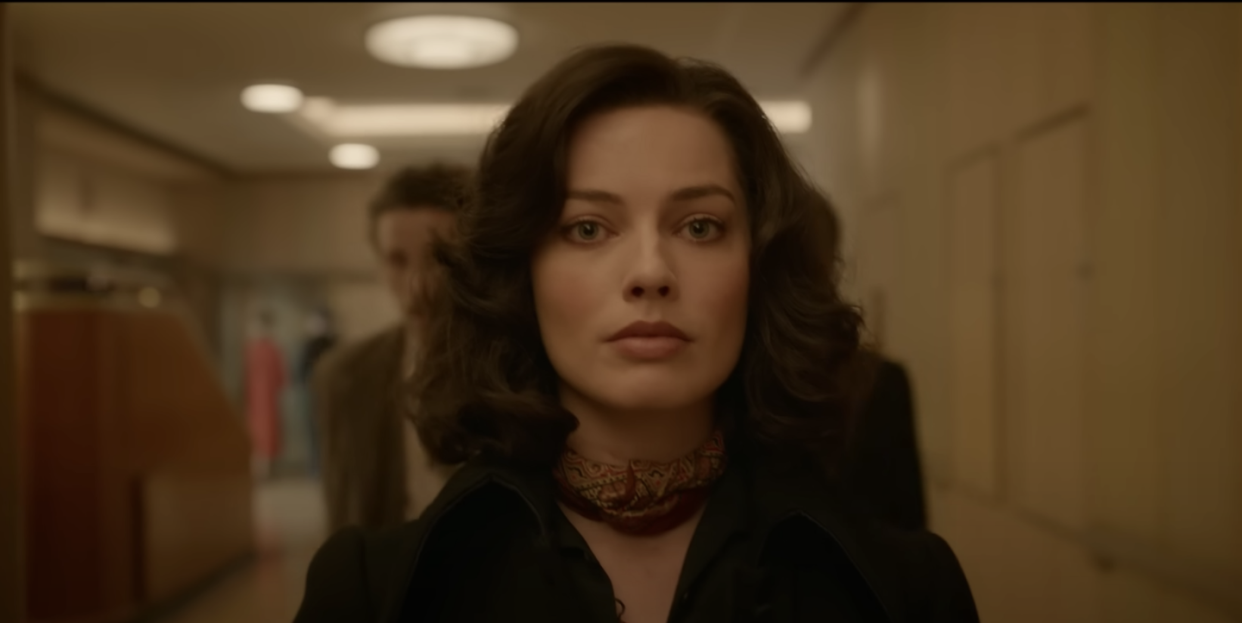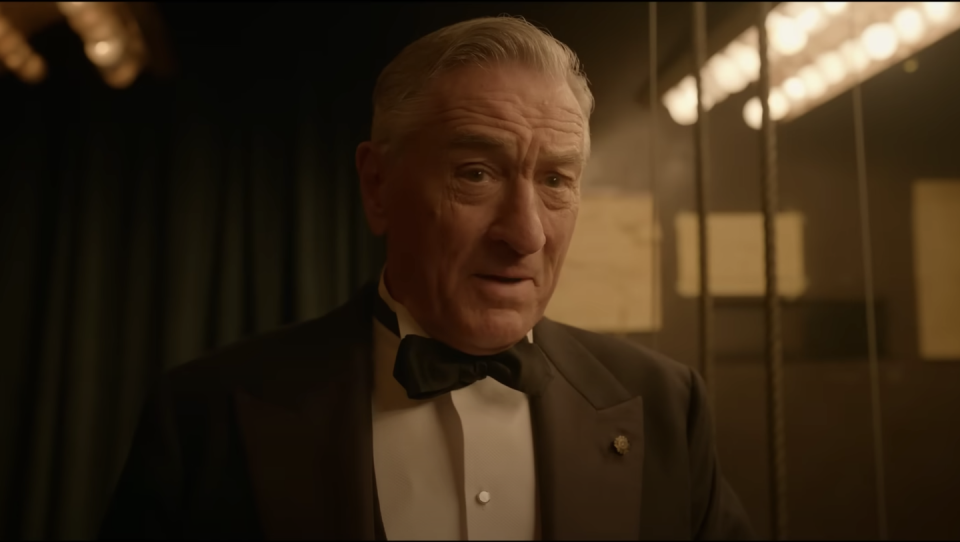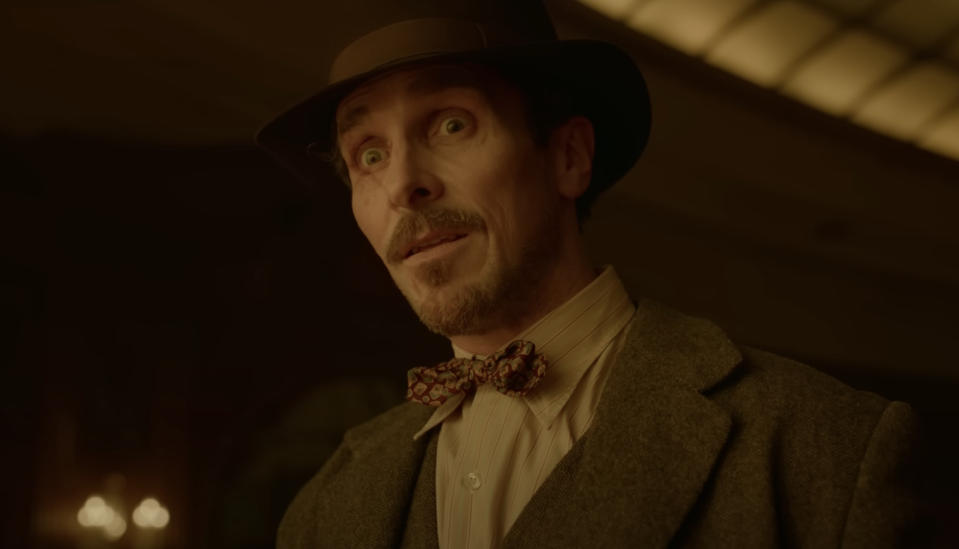'Amsterdam' Goes For Wokeness Over Substance

- Oops!Something went wrong.Please try again later.
America may have run out of exciting based-on-a-true-story films about the nation's most unsung heroes. All the President's Men followed the journalists who broke the Watergate scandal, Argo detailed a CIA operative who rescued diplomats from Tehran, and Hidden Figures explored the women who helped make the Moon Landing possible. Of course, these are just a few examples of movies depicting some of America's largest accomplishments, scandals, and political what-ifs, but they also—for the most part—actually happened.
Amsterdam, David O. Russell's first film in over seven years, begins with a title card that explains what people have come to be familiar with in true-story films, telling us, "a lot of this really happened." What the audience learns after, however, is that not only did most of what you just saw arguably never occur, but the big scandal itself may have never even taken place at all. You don’t get the answer to one of America’s best-kept political secrets at Amsterdam's end. You mostly just get tricked into learning what this crime caper has covertly been leading toward this entire time.
The story begins with Dr. Burt Berendsen (Christian Bale), a half-Jewish, half-Christian Manhattanite who treats veterans and has a wonky glass eye from his own tour of service in World War I. He's clearly a guy who never could have existed in real life—or if he did, he couldn't have had anything to do with this story. For all the nonsense that ensues in Amsterdam, Bale is the film's one shining beacon of hope. He's fully committed to his character, as opposed to some of his castmates, and his slapstick comedic timing is one of Amsterdam's only saving graces. Like a reluctant noir detective, he's constantly jostled around and thrown to the ground, occasionally having to paw around for his lost eye like Velma's glasses in Scooby-Doo.
War buddy Harold Woodman (John David Washington) calls and informs him that their former army general, Senator Bill Meekins (a corpse-like Ed Begley Jr.) has been murdered. The Senator's daughter, Elizabeth (Taylor Swift), contacts Burt to perform a secret autopsy. Yes, the mega-pop star is here for two scenes—one of which will surely be memed out of existence. After another murder takes place, the gang becomes suspects in a larger political scandal. A long, impossible-to-solve-yourself plot occurs over the course of the film, wherein every new character you meet is an instantly recognizable celebrity. (Cue: Margot Robbie, Anya Taylor-Joy, Remi Malek, Zoe Saldaña, Mike Myers, Chris Rock, Michael Shannon, and Timothy Olyphant). Eventually, all roads lead to retired General Gil Dillenbeck (Robert De Niro). He's a decorated veteran based on real-life figure Major General Smedley Butler, who spoke about late payments from the Great Depression during what is known as the 1932 Bonus Army march on Washington. It's the first time in Amsterdam that I was certain we got to something that actually took place in American history.

It may have taken forever to get here after galavanting in an Amsterdam war hospital and a wealthy businessman's estate, but this is when the film finally gets to why David O. Russell seemingly made the damn thing. You see, a bunch of old-timey business tycoons allegedly planned to take over the government and replace then-ill President Franklin D. Roosevelt with a puppet dictator. They want to pay the General a large sum of money to give a big speech at Doctor Burt's annual veteran's event in support of their fascist cause, but ol' De Niro just can't do it. Instead, he gives a rousing speech about the need to uphold truth, democracy, and freedom. Surprise! The ending of the film is nothing more than that video of A-list celebrities singing “Imagine” to us over Zoom.
Clearly, David O. Russell is another creative who saw Trump become the President, lost his mind, and then gathered as many celebrities as he could to defend one of the most agreeable stances in the history of the world: that hate is bad and kindness is good. It's the kind of lukewarm, on-the-nose take that elicited audible groans throughout the theater. Amsterdam wasn't an interesting murder mystery with a rewarding payoff. It was just the closest thing in American history that David O. Russell could find that mimicked the January 6 insurrection. "You don't get here without things starting a long time ago," Bale's Dr. Burt says.
Known as the 1934 "Business Plot," Major Gen. Smedley Butler really did give an address to a special House committee regarding his belief that a small cabal of wealthy businessmen was plotting a political conspiracy to install a dictator. He said that they were backed by a private army of nearly 500,000 veterans and that he was asked to lead it. The only problem? It seemed that no one was really interested in that happening. After General Butler gave his testimony, every party allegedly involved called the plot a complete fantasy. Nothing ever happened, the special House committee couldn't find any evidence of a planned coup, and an independent investigation by The New York Times concluded just as much as well. In a 1934 article titled "Plot Without Plotters," Times journalists mocked that "No military officer of the U. S. since the late, tempestuous George Custer has succeeded in publicly floundering in so much hot water as Smedley Darlington Butler." Ouch!

But the "what-if" of the General's allegations describes what many believe could have also been the "what-if" of the U.S. Capitol attack, even though neither event came even close to accomplishing its goal. If audiences are going to Amsterdam to look for artistic takes on the current state of the world, "we need more love and kindness" is quite a layman’s response—especially from some of the world's most recognizable celebrities. As filmmaker Paul Schrader said at a recent New York Film Festival Q&A, audiences are simply just not as excited to hear movies work through the problems of our time as they might have been during the anti-war movement or social revolutions of the '60s and '70s.
Why? Maybe because those problems have still not been solved some 60 years later. Most people no longer go to the movies for “takes,” but to escape reality entirely. Hell, most people no longer even really go to the movies. There’s a reason why the leader of the Avengers—a superhero literally named Captain America—fought a big purple monster in space instead of giving oratories on why we should protect American freedom at all costs. You could argue that kindness is seemingly the message this world still needs, sure. But Christian Bale's character going into self-induced ecstasy because his two best friends are in an interracial relationship does not help the bare-bones wokeness similar films fail to make even just a little more nuanced. Even so, the down-your-throat optimism at the end of Amsterdam is certainly not the vehicle this film needed for any sort of entertaining climax. I've got plenty of other places to be preached to.
You Might Also Like

